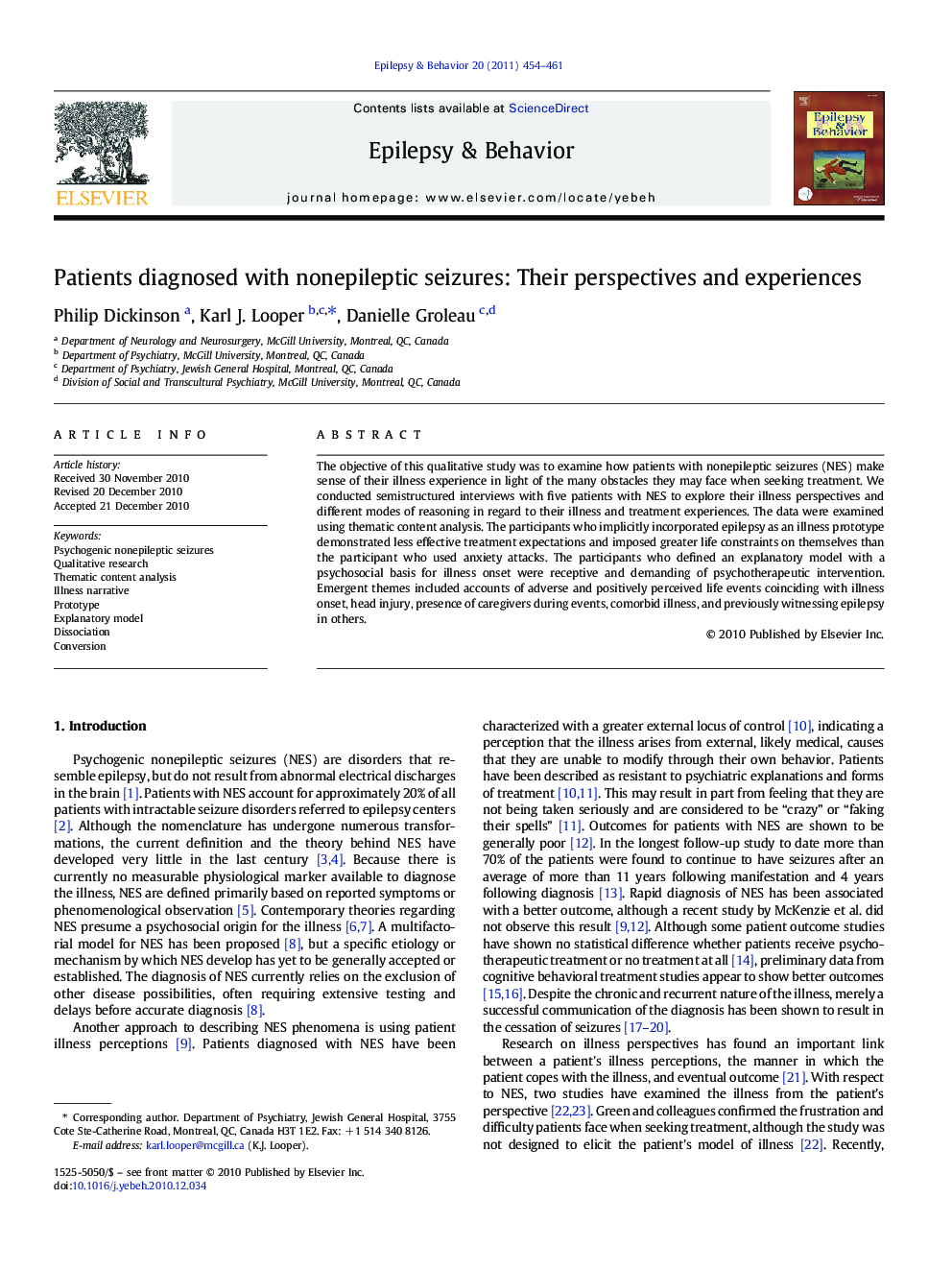| Article ID | Journal | Published Year | Pages | File Type |
|---|---|---|---|---|
| 6014802 | Epilepsy & Behavior | 2011 | 8 Pages |
The objective of this qualitative study was to examine how patients with nonepileptic seizures (NES) make sense of their illness experience in light of the many obstacles they may face when seeking treatment. We conducted semistructured interviews with five patients with NES to explore their illness perspectives and different modes of reasoning in regard to their illness and treatment experiences. The data were examined using thematic content analysis. The participants who implicitly incorporated epilepsy as an illness prototype demonstrated less effective treatment expectations and imposed greater life constraints on themselves than the participant who used anxiety attacks. The participants who defined an explanatory model with a psychosocial basis for illness onset were receptive and demanding of psychotherapeutic intervention. Emergent themes included accounts of adverse and positively perceived life events coinciding with illness onset, head injury, presence of caregivers during events, comorbid illness, and previously witnessing epilepsy in others.
Research Highlights⺠Semistructured interviews were used to elicit the illness experience of patients with nonepileptic seizures. ⺠Illness identified as prototypical had an impact on treatment expectations and life constraints. ⺠The epilepsy prototype resulted in less effective expectations than anxiety attacks. ⺠Identification of an explanatory model led to a demand for psychotherapeutic treatment. ⺠Understanding illness perceptions can improve strategies and pathways to care.
